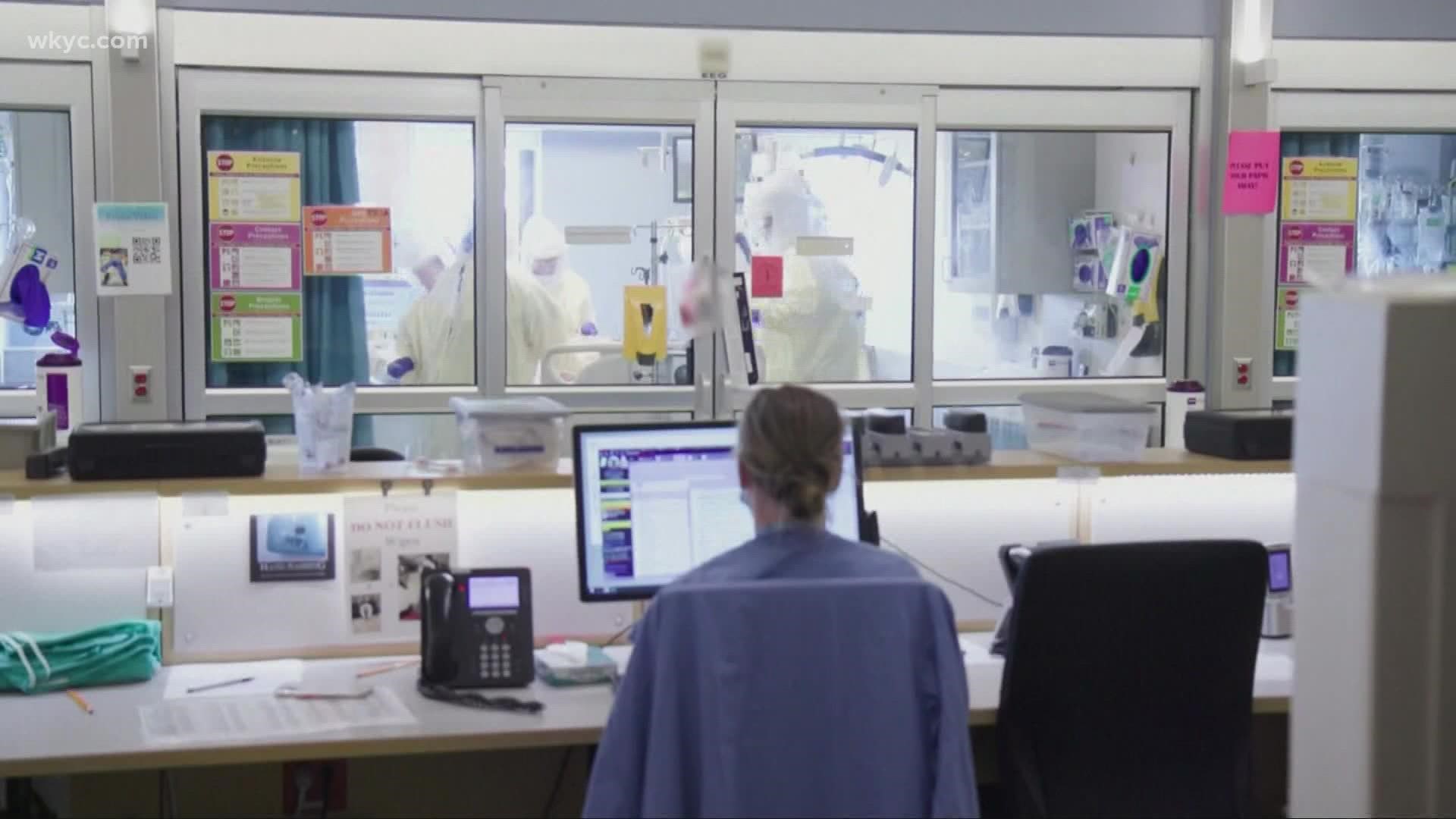CLEVELAND — Pfizer and BioNTech are starting a clinical trial to test a vaccine designed specifically to address the omicron variant.
According to the announcement on Pfizer’s website, the study is designed to “evaluate the safety, tolerability and immunogenicity of an Omicron-based variant candidate in healthy adults 18 through 55 years of age.”
The announcement states that the trial will involve up to 1,420 people, split into three groups. One group will have already received two doses of Pfizer’s COVID-19 vaccine 90 to 180 days before enrolling in the study. For the study, they will receive one or two doses of the omicron-specific vaccine.
The second group will have already received three doses of the Pfizer vaccine with that same timeline, and will receive one dose of the Pfizer vaccine or omicron-specific vaccine.
The third group is made up of individuals who have not received any form of COVID-19 vaccine, and will receive three doses of the omicron-based vaccine.
While doctors say existing COVID-19 vaccines are indeed effective in preventing severe illness and hospitalization from the virus, the more contagious nature of omicron has made it harder for vaccines to completely prevent infection.
“With omicron, the vaccines still work, but what they weren’t doing as well was preventing any kind of infection,” said Dr. David Margolius, division director of general internal medicine at MetroHealth.
“What I think is concerning is there have been a number of breakthrough cases with the current vaccines, particularly people who haven’t been boosted,” said Dr. Thaddeus Stappenbeck, chair of the department of inflammation and immunity at Cleveland Clinic.
These doctors said that the possibility of an omicron-specific vaccine could be a helpful tool in the continued fight against the virus.
“Omicron seems to come fast and go away fast. By the time this clinical trial’s completed, omicron may not be an important variant,” said Dr. Keith Armitage, medical director of University Hospitals' Roe Green Center for Travel Medicine & International Health. “But if it is an important variant, then we’ll have a new vaccine that’s specific to omicron and particularly could prevent infection with omicron.”
While the timing of this new vaccine trial may not work in Northeast Ohio’s favor, it could still make a difference in states and countries who are currently or yet to experience the omicron surge. In recent days, Northeast Ohio’s COVID-19 cases and hospitalizations have been going down.
“By the time the omicron vaccine were to get here, it wouldn’t serve a great purpose for us,” said Dr. Margolius. “But there are other parts of the world where they haven’t had their omicron surge yet where that would be helpful.”
Additionally, having the technology to be able to tweak and adjust the MRNA technology in the vaccine could help battle potential future variants and mutations.
“One of the very exciting things about this MRNA vaccine technology is you can very quickly alter the details of the vaccine,” said Dr. Armitage. “It’s really the same vaccine, but you can alter the protein the vaccine produces to give you a different immune response.”
These doctors did say additional variants in the future were possible.
“I think this is what was so exciting with the technology when it came out,” said Dr. Stappenbeck. “It essentially was at the click of a button, you’d be able to essentially change the sequence that you would have in the vaccine. The platform is still the same, the way they’re made is still the same, it’s just the sequence now is more precise.”
Dr. Stappenbeck also emphasized the continued importance of getting vaccinated to prevent the worst impacts of COVID-19.
More COVID-19 coverage:
- Pfizer opens study of COVID shots updated to match omicron
- 'Our staff is grateful for their support'; Cleveland Clinic officials thank US Air Force members who have assisted over the past week
- COVID-19 in Ohio: State reports 4,163 new cases in the past 24 hours; case counts underreported due to data error
- Move by FDA Monday on 2 COVID antibody treatments could get political pushback

